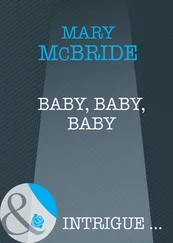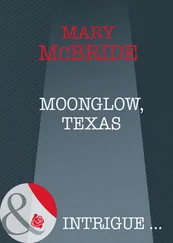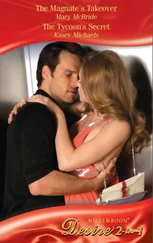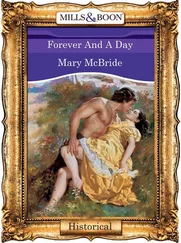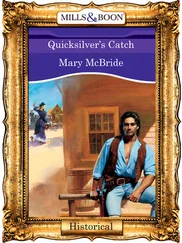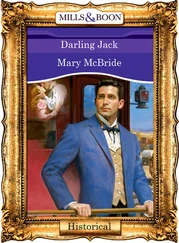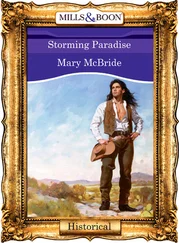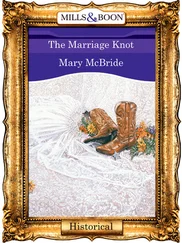“I must hurry, Haley,” she said, clambering down from the wagon seat before he could come to her aid, then reaching for the valise that held her precious letters. “If you’ll carry my other bags to the gangplank, I’d be most appreciative.”
Emily hurried across the cobblestones to show her ticket to the captain.
He squinted at her from beneath the polished brim of his cap. “You traveling alone, Miss Russell?”
After she nodded, the man handed her ticket back, then lightly touched her arm. “I’ll keep a special eye out for you. Fine family, those people of yours. I’ve met your uncle, the legislator, on one or two occasions.”
“How nice,” she replied while thinking that her uncle Randolph would likely be the first to disown her in light of her condition.
“You give him my regards when next you see him, will you?”
“Indeed I will, Captain.”
“Is that your man with your luggage?” he asked, angling his head toward Haley, who was just then waging a losing battle with a small steamer trunk, a suitcase, and two carpetbags.
The captain gestured to one of his crewmen, a muscular man. “See that Miss Russell’s luggage makes it to her stateroom, will you?”
Then, after the captain turned to greet other passengers, Emily walked back to bid farewell to Haley.
He stood, gazing forlornly at the ground, the worn toe of one boot lodged between two cobblestones.
“Well, I guess it’s time for you to get on board,” he said. Then he looked up and gave her a wide but toothless grin. “I kinda wish I was going with you, Miss Emily. Out West, you know. Where things is all brand-new.”
“Brand-new,” she echoed, despite the lump in her throat, suddenly feeling far sorrier for Haley than she did for herself. “Well, come along then,” she said, surprising herself by how much she meant it. “Come west with me where things are indeed all brand-new.”
Haley toed the cobblestones again. “It’s tempting, Miss Emily. But there’s my ma back in Russell County, you know. She’s doing poorly, and I think she’d just plain up and die if I left her.”
Emily was so touched by the man’s loyalty to his mother that her eyes brimmed with tears. You’re a lucky woman, Sally Gates, she thought, and your bastard boy turned out to be your blessing, didn’t he? I hope I’m just as fortunate.
“Haley, I know I was only supposed to pay you six bits for the ride.” Emily dug in her reticule as she spoke. “But, here. I want you to take this.” She pressed a five-dollar gold piece in his hand.
“Aw, Miss Emily. That’s too much.”
The Memphis Zephyr’s steam whistle gave three long, shrieking blasts, nearly deafening Emily.
“I said that’s way too much,” Haley shouted.
“I must run or I’ll miss my boat.” She bunched up her skirts and began to hasten toward the gangplank, then called back over her shoulder. “You keep that, Haley. Buy something nice for your mama.”
“That’s awful nice of you, Miss Emily. You have a safe trip now and you enjoy all them brand-new things out West, you hear? When you come home, I hope you’ll tell me all about ’em.”
“I’ll do that, Haley,” she lied, trying to smile through her tears and waving from the deck while the steamboat’s gangplank rose as if it, too, were waving a long and last goodbye to Mississippi and everyone in it.
John Bandera was tired to the marrow of his bones. He was just back from Abilene after a hellacious late spring drive that had lost him two good men and at least two hundred head of cattle. The longhorns that had managed to survive the trip had jittered themselves to skin and bones, so instead of collecting the usual fifty bucks a head at the end of the trail, John had considered himself damned lucky to get thirty. He’d paid his men their wages, then seen to their bail when necessary, and finally settled up the considerable damages they’d wrought at four different saloons before setting out on his own, solitary, hard ride back to south Texas.
It was good to be home, he thought, as he lifted a worn and dusty boot up onto the porch rail and angled his chair onto its back legs. Dios. It was pure heaven to be home. Maybe he’d rename the ranch. Pure Heaven, maybe. Or simply Home.
He’d hated it six years ago when Price had insisted they name their newly acquired property The Crippled B. John had still been hobbling around on crutches then after breaking his leg in Arizona. He remembered his partner’s mysterious and drunken grin when he’d slurred, “It’s the perfect name, amigo. Don’t you see? It’ll keep them guessing which one of us it means.”
“B for Bandera,” John had muttered. “The crippled one.”
“Is it?” Price had replied. “It might just be B for bastard.”
Now, sitting on the porch the two of them had built, John thought that Price probably had been right about the ranch’s name after all. It had only taken a few months for John’s busted leg to heal, but his partner had indeed turned out to be a crippled bastard who came to despise the ranch and the ranching along with just about everything and everyone else in Texas, and whose only friend turned out to be the whiskey bottle forever in his grasp.
Then one morning, without a warning or a farewell—fond or otherwise—both the bottle and Price McDaniel had simply disappeared. He’d sent a wire a few months later, asking John to send him two thousand dollars in care of a woman in Denver, no doubt for one last, lethal binge. The check had been cashed, but there hadn’t been another word from Price McDaniel. For all John knew, his partner was dead.
In the three years since Price’s disappearance, John Bandera had done the work of two men—maybe even three or four—expanding The Crippled B and turning it into one of the best ranches in south Texas.
Now, though, after this grueling drive to Abilene, it was time to rest, just for a while, during the last blaze of August heat, before the autumn work began. Maybe he’d even spend a week in Brownsville or Corpus Christi, he thought. A long, slow, sleepy week in a big brass bed with rumpled sheets and a tawny señorita might be what he needed to ease not just his body, but his mind, as well. His heart, however, was another matter.
He sighed, squinting into the bright distance at nothing in particular, refusing to think about that, unwilling to tap into that constant, bitter ache that was forever just beneath the surface, resisting even the thought of her name. Almost. But not quite.
Emmy. Dios, how he loved her! How he missed her wonderful letters. He’d ridden back from Kansas hoping, almost praying, that she’d written to him one more time in spite of the fact that he’d told her not to. She hadn’t written, though.
A distant swirl of dust claimed his attention. From the main house, which was built on what passed for a hill in this flat country, it was possible to see several miles in every direction. And now, near the crossing at Sweetwater Creek, John could just make out the dark silhouette of a mud wagon hitched to a pair of horses.
Damn, he thought. He’d hoped to have the house to himself for a few days, but now it looked as if his housekeeper, Señora Fuentes, and her daughter, Lupe, were coming back earlier than expected from their sojourn in Nuevo Leon.
“Damn,” he muttered out loud, then hauled his weary bones out of his chair to retrieve the spyglass he kept on a table just inside the front door. The last thing he needed at the moment was a resumption of young and buxom Lupe’s relentless onslaught on his senses. He never would have hired the Mexican widow last year if he’d known that the bargain included the señora’s seventeen-year-old, hot-blooded daughter.
Читать дальше


